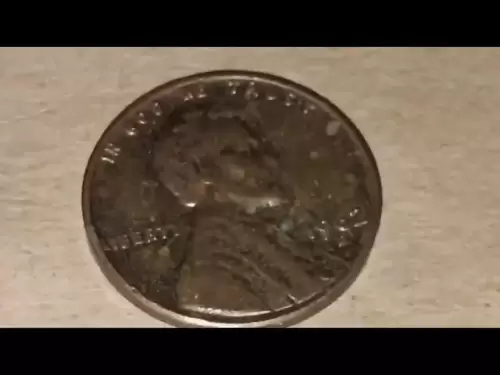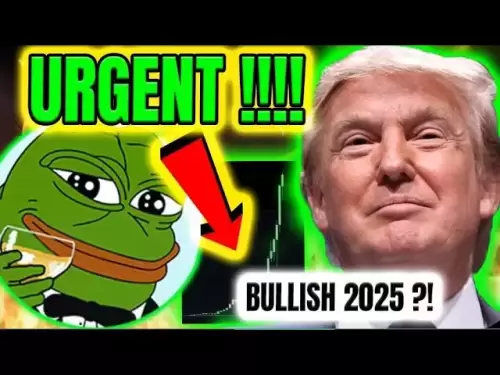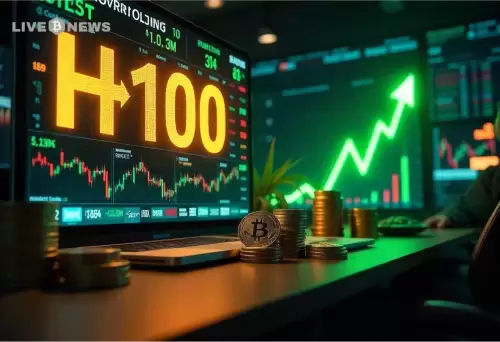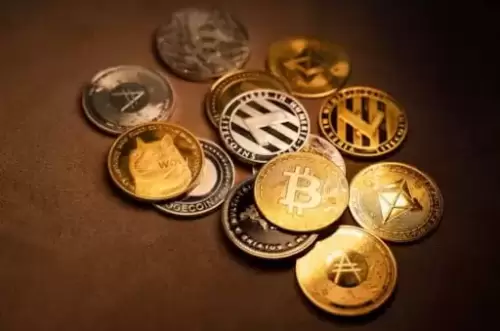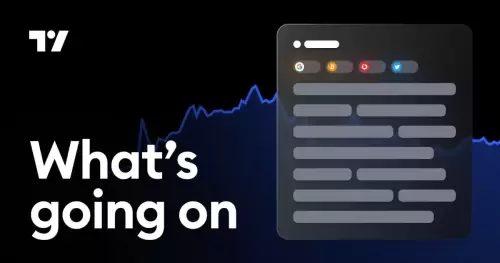 |
|
 |
|
 |
|
 |
|
 |
|
 |
|
 |
|
 |
|
 |
|
 |
|
 |
|
 |
|
 |
|
 |
|
 |
|

It's easy to be down on Bitcoin (CRYPTO: BTC) these days. After all, it has fallen more than 20% from an all-time high of $109,000 back in January. And due to ongoing tariff uncertainty, it's failed to live up to the spectacular hype that surrounded it earlier in the year.
Yet this might turn out to be the last chance you'll ever get to buy Bitcoin for less than $100,000. There are two fundamental changes taking place right now in the global financial markets, and Bitcoin is core to both of them.
Where to invest $1,000 right now? Our analyst team just revealed what they believe are the 10 best stocks to buy now. Continue »
Bitcoin as digital gold
The first major change involves investor perceptions of Bitcoin. Is it a frothy, speculative digital asset? Is it a risky tech stock or something entirely different?
At the beginning of the year, Bitcoin behaved like a speculative digital asset. Analysts were quick to issue $200,000 price predictions back in January. At the time, the cryptocurrency was trading at about $100,000 and seemed like an obvious, no-brainer candidate to double in value by the end of the year.
But after new tariffs on Canada, Mexico, and China were announced by President Donald Trump in late January, Bitcoin started to behave much more like a risky tech stock. In other words, if tech stocks were falling in value one day, then Bitcoin was likely to fall, as well.
As a result, Bitcoin's price was highly volatile, whipsawing on a daily basis. Every new change in tariff policy showed up in the prices of tech stocks, and that meant every new change in tariff policy also showed up in the price of Bitcoin.
However, something very interesting has been taking place since "Liberation Day," when Trump unveiled his tariff plans. The price of Bitcoin has largely remained little changed. On April 2, it was trading for $85,000; now, nearly three weeks later, it's still trading for about $85,000.
Image source: Getty Images.
That has led to the development of a very interesting investment thesis for Bitcoin: It might be a long-term store of value. In other words, it might actually be digital gold, as Bitcoin enthusiasts have been declaring for years.
Just as gold can provide a hedge against economic uncertainty and inflation, so can Bitcoin, due to its inherent scarcity. This is a point that some top hedge fund managers have been making for months.
That type of thinking has started to filter down into the mainstream investing narrative. Outflows from the spot Bitcoin exchange-traded funds (ETFs) have started to reverse, with money now flowing back in.
The Trump White House and Bitcoin
There's another fundamental change taking place right now, and that involves government support of Bitcoin as a national strategic asset. Just as nations stockpile oil and other commodities, they're now starting to stockpile Bitcoin.
The most obvious sign of this change, of course, was the establishment of a Strategic Bitcoin Reserve by the White House back in March. A number of U.S. states -- including Texas, Arizona, and North Carolina -- are also starting to formulate plans for their own Bitcoin reserves at the state level.
As part of this new shift in thinking, the first-ever Strategic Bitcoin Reserve Summit took place on April 15. Panelists discussed topics such as the geopolitical implications of Bitcoin and the role that the cryptocurrency might play in reordering the global financial system.
This concept of Bitcoin as a strategic asset is starting to resonate with other nations, as well. Emerging markets, for example, are now getting into the act, launching plans for Bitcoin reserves of their own. And some have even suggested that, if the U.S. government starts to buy Bitcoin aggressively, it could set off a Bitcoin "arms race" with Russia or China.
Things get even more interesting when you consider that Bo Hines, executive director of the President's Council of Advisers on Digital Assets, recently suggested that new tariff revenue might be used to buy Bitcoin. That's important because the U.S. government currently can't buy more Bitcoin unless it does so in a "budget-neutral" (i.e., no new taxes) way.
New tariff revenue might be able to meet the definition of "budget neutral." Theoretically, a portion of the new revenue coming in from tariffs could be sent to the U.S. Treasury Department, which is in charge of the Strategic Bitcoin Reserve, to buy Bitcoin in the spot market.
How high can Bitcoin go?
Even if you dismiss the new Strategic Bitcoin Reserve as just a lot of hype and bluster, it's impossible to ignore that there's a lot of discussion happening right now about ways that
免責聲明:info@kdj.com
所提供的資訊並非交易建議。 kDJ.com對任何基於本文提供的資訊進行的投資不承擔任何責任。加密貨幣波動性較大,建議您充分研究後謹慎投資!
如果您認為本網站使用的內容侵犯了您的版權,請立即聯絡我們(info@kdj.com),我們將及時刪除。
-

-

- Ruvi AI(RVU)利用區塊鍊和人工智能破壞營銷,娛樂和金融
- 2025-06-13 07:05:12
- 長期以來,Tron一直是區塊鏈項目如何通過關注其使命並實現一致增長來取得顯著成功的一個輝煌的例子。
-

-

-

- 隨著RWA集成計劃,信任錢包令牌(TWT)的價格下跌了5.7%
- 2025-06-13 06:45:13
- Trust Crypto Wallet的最新宣布將令牌化現實資產(RWAS)帶到其超過2億用戶引起了興奮。
-

- 以太坊(ETH)處於三階段市場週期的第二階段
- 2025-06-13 07:25:13
- 根據分析師Abbé提供的圖表和推文信息,以太坊(ETH)處於三階段市場週期的第二階段。
-

-

-




















